IN THE NEWS

Abarbanel Rosé Makes Its Debut for Rosh HaShanah 2021
Making a splash on the blush scene is our new Rosé ’20 – springtime in a bottle – wonderfully semi-dry with hints of all kinds of berries.
Read more here.
Live Tasting of Abarbanel Wines by Kosherwine.com
March 2021
A filmed horizontal tasting of the Abarbanel line of kosher wines with tasting notes and pairing recommendations. CLICK HERE to watch the video.
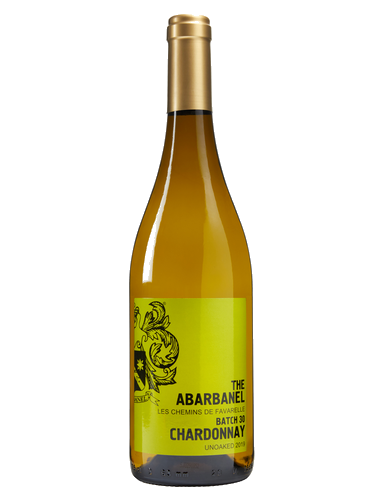
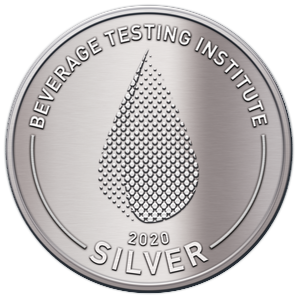
Abarbanel Chardonnay ’19 Takes Silver Medal, 87 Points and “Best Buy” Designation from The Beverage Testing Institute, November 2020
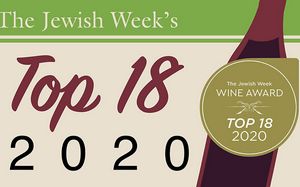
Jewish Week's Top 18 Kosher Wines 2020
Top 18 White Wines Under $18
Abarbanel Chardonnay ranked #2 in the nation. Abarbanel Gewurztraminer ranked #5 in the nation! In "Top 18 Chardonnays" competition (all price points) Abarbanel Chardonnay is ranked #3 in the nation! Go get some!
Top White Wines Under $18
Top Chardonnays
9 Medals Won by Abarbanel Brand Wines in 2019, 274 Medals Won Since 1992
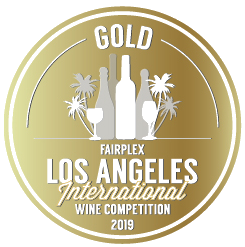
2019 was a year of acclaim for Abarbanel Brand Wines at some of the country’s major wine competitions. Nine medals were won by Abarbanel wines in head-to-head contests with some of the best non-kosher wine producers in the world.
Leading the way was The Abarbanel Gewurztraminer ’16 which garnered a Gold Medal and a 91-point rating at the prestigious Los Angeles International Wine Competition. Our 2016 vintage Cabernet Sauvignon took Silver and our 25th Anniversary Reserve Rouge (2016) got a Bronze.
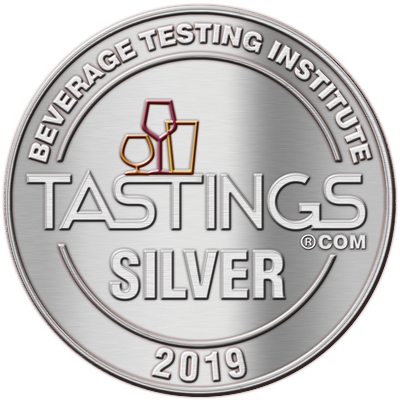 At the Beverage Testing Institute/Tastings.com our wine really shone. Our new 2017 vintage Reserve Rouge was awarded 89 points and a Silver Medal; Beaujolais Villages ’18 received 88 points along with a Silver and our 2018 Batch 30 Unoaked Chardonnay received a Bronze Medal.
At the Beverage Testing Institute/Tastings.com our wine really shone. Our new 2017 vintage Reserve Rouge was awarded 89 points and a Silver Medal; Beaujolais Villages ’18 received 88 points along with a Silver and our 2018 Batch 30 Unoaked Chardonnay received a Bronze Medal.
Solid Silver was the word at the USA Wine Ratings competition – three Silver Medals – our new Beaujolais Villages ’18 received an 87-point rating, the 2016 Gewurztraminer was accorded 85 points and our 2017 Cabernet Sauvignon got 84 points.
Since 1992 (the year Abarbanel wines entered the market with our 1990 vintages of Beaujolais and Chardonnay) our wines have received 274 medals at major wine competitions.

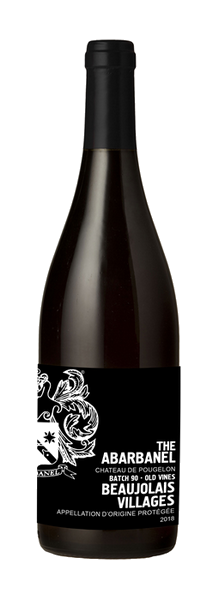
In their "Best Wines of 2019" year-end edition, Wine Enthusiast magazine had a wonderful review of our 2018 Beaujolais Villages:
87 Abarbanel 2018 Château de Pougelon Kosher (Beaujolais-Villages). "This wine is full of bright red-berry flavors with a perfumed aftertaste. With density as well as attractive acidity, the wine is balanced and ready to drink. Kosher. Abarbanel Wine Company. —R.V. abv: 14%"

L’Chaim celebrates the return of Abarbanel Beaujolais
March 1, 2019
"I have never been shy about my love affair with the infectiously joyous, essentially flirtatious, wonderfully refreshing wines of Beaujolais, France. It was with genuine excitement that I received news from Howard Abarbanel that his Abarbanel Beaujolais Villages was returning to the American market with a 2018 vintage...
The Abarbanel, Beaujolais Villages, Château de Pougelon, Batch 90, Old Vines, 2018 ($16-17): Bright crimson with a lustrous deep purple highlights, this delightful wine offers appealing outdoorsy aromas of flowers and red and black summer fruits, leading to yummy flavors of raspberries, blackcurrants, blackberries, cherries, subtle blanched almonds, a little violet, and all with a light strawberry overlay. Well-balanced with nice acidity and mild tannins, this can play down as a simple but oh-so-pleasurable quaffer to accompany light meals, picnics, or a pre-dinner cocktail hour, but can just as easily play up to hearty meat meals with just enough felicitous complexity to hold the attention. This is a lovely Beaujolais Villages!"

May 18, 2018
"The Abarbanel, Les Chemins de Favarelle, Batch 30, Chardonnay, Unoaked (Pays d’Oc, IGP, France), 2016 ($15; mevushal): Sourced once again from a single vineyard in the Aude River Valley of the Languedoc in southwest France, this latest vintage is fresh, clean, and inviting with notes of citrus and stone fruits, a little spice, and nice balancing acidity. From year to year, this represents consistently great value."
Please note that of all the Chards reviewed, we are the most popularly-priced and affordable by a wide margin. Scores high on the price/value ratio.


The 14 Best Wines to Serve for Passover
Our Riesling 2015 was mentioned as one of the top 14 kosher wines for Passover by Town & Country magazine. Of the 14 only about half were kosher, so it says a lot that our wine made the cut and was part of these recommendations.
Click here for the Full Story


Options for Cup 3 of Passover
March 20, 2018"The Abarbanel, 25th Anniversary, Special Reserve, Rouge, 2016 ($17-$20): Value-priced, light-to-medium-bodied, and light in tannins, this is an all-around inviting and enjoyable single vineyard blend of cabernet sauvignon (65%) and merlot (35%) from the Aude River Valley in the South of France. This is easy drinking and food-friendly, offering aromas and flavors of cherry, plum, and cassis with some subtle herbs and light tobacco, and perhaps a whiff of coffee.. Let it breathe in the glass a little first."
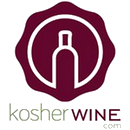
Joshua London tries the Abarbanel Rouge 2016
December 11, 2017
Watch the Video Review - CLICK HERE

Thanksdrinking: Thanksgiving wine pairings
November 15, 2017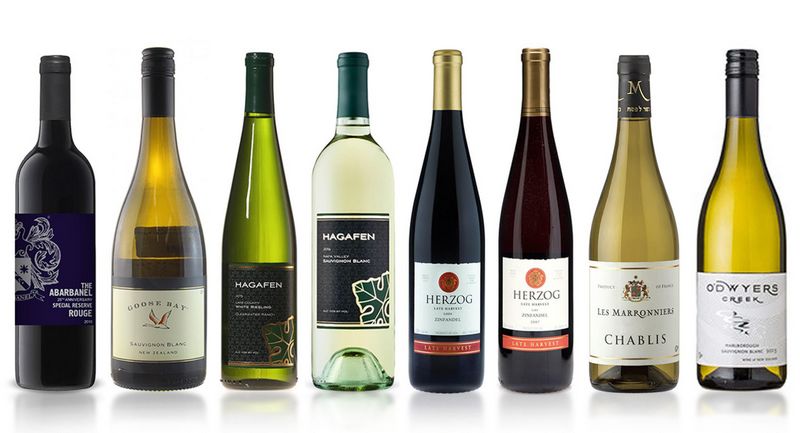 All festive meals, and nearly all extended family gatherings, are greatly improved by the judicious provision of choice wines and spirits. Thanksgiving is no exception.
All festive meals, and nearly all extended family gatherings, are greatly improved by the judicious provision of choice wines and spirits. Thanksgiving is no exception.
Indeed, Thanksgiving should be thought of as an opportunity—unbounded by the usual constraints imposed by Shabbat and Jewish holidays—to entertain big with kith and kin. It is a festive meal entirely free of religious overtones or holiday-specific obligations.
Barring relationship break-ups, tumultuous screaming matches, and unwelcome visits from law enforcement, it seems there isn’t really a wrong way to do Thanksgiving. So open a few bottles of wine, relax, and have a little fun.
The only wine rule I consider inviolable is this: do not run out of wine!
When planning a relative feast, such as Thanksgiving, I estimate roughly one bottle per drinking guest (about 6 glasses). It is better to have leftover open bottles of wine, than to run out entirely. If the thought of unfinished opened bottles of wine is irksome, hand them out to your guests as a parting gift.
When it comes to pairing wines with your Thanksgiving meal, keep in mind that there is no perfect pairing. Indeed, the so-called rules for pairing food with wine are no different than at any other time. The goal of pairing wine with food is balance; neither the food nor the wine should overpower one another...
"Finally, for those seeking a budget-friendly quaffer to quench thirsts and accompany the proceedings nicely, consider the newly released The Abarbanel, 25th Anniversary, Special Reserve, Rouge, 2016 ($20; currently available for $17 at kosherwine.com): Value-priced, light-to-medium bodied, and light in tannins, this is an all-around inviting and enjoyable single vineyard blend of Cabernet Sauvignon (65%) and Merlot (35%) from the Aude River Valley in the South of France. This is easy drinking and food friendly—though let it breath in the glass a little first; offering aromas and flavors of cherry, plum, and cassis with some subtle herbs and light tobacco, and perhaps a whiff of coffee. L’Chaim!"

A Few Bottles to Brighten Your Mood
June 14th 2017By Joshua E. London
 Being originally from California, when I want to lighten the mood, I usually reach for a something from the Golden State, like the dependably delicious Hagafen Sauvignon Blanc 2016 ($27) from Napa Valley, or the always enjoyable Covenant Red C Rose 2016 ($35) from Sonoma. Both are absolutely fine choices, and I recommend them unreservedly.
Being originally from California, when I want to lighten the mood, I usually reach for a something from the Golden State, like the dependably delicious Hagafen Sauvignon Blanc 2016 ($27) from Napa Valley, or the always enjoyable Covenant Red C Rose 2016 ($35) from Sonoma. Both are absolutely fine choices, and I recommend them unreservedly.
At this moment, however, I found myself reaching for the latest vintage of Alsatian Riesling from the Abarbanel Wine Co. With its new “Lemminade” light green and yellow label and packaging, the bottle just seemed bright and inviting.
This 2015 Riesling was hand-harvested from 40-year-old vines in the Haut-Rhin region of Alsace. Situated in eastern France, bordering Germany to the north and east, and Switzerland to the south, the Alsace is known for its white wines, such as its clean, bright, typically dry and generally linear Rieslings, and dry-to-off-dry Gewurztraminers.
There are only a handful of kosher Alsatian Rieslings in the U.S. market at any given moment, and other enjoyable examples of kosher Riesling are also available from California, Canada, Germany and Israel. The glass before me now, however, is this:
Abarbanel, Lemminade, Riesling, Vin D’Alsace, Semi-Dry, Old-Vine, 2015 ($18; non-mevushal): Clean, bright, fresh and really lovely with citrus and refined floral aromatics followed on the palate with the fresh, racy tang of sour lemon, tart apple, great minerality, zippy acidity and a little spice, and all in fine balance creating an almost crystalline or delicate effect for a wine that otherwise has some nice heft and mouthful. Overall, this is vivacious and food-friendly, with reserved, Old World charm. Serve lightly chilled.
Since it is still available, try comparing the new vintage to the previous one (with the old packaging) — Abarbanel, Old Vine Riesling, Batch 66, Vin D’Alsace, France, 2012 ($19; mevushal): No longer as restrained on the nose as it once was, this lovely wine offers classic citrus, flint, and floral aromatics followed on the palate with the fresh, racy tang of citrus, spice and herbs, with still enough of the acidity to keep it all together nicely, and now with additional bottle-age complexity to make it enjoyable even without food. Serve lightly chilled. Also consider the other Abarbanel Alsatian wine: Abarbanel, Lemminade, Gewurztraminer, Vin D’alsace, Old-Vine, 2015 ($23; non-mevushal): This is a beautiful, bright, vibrant, somewhat rounded yet refreshing and very slightly sweet Gewurtz with tingly acidity and wonderful aromas and flavors of white peach, lychee and wild flowers, with notes of ginger and cloves. Serve only slightly chilled with poultry, Asian cuisine or Cajun cooking.
L’ chaim!

Abarbanel is Back with Solid and Affordable Wines in Time for the Holidays
September 29th 2016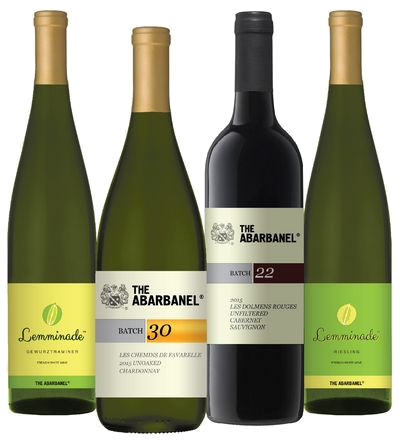 As the High Holidays roll around, we find ourselves planning large meals and needing plenty of wine to accompany them. As a fan of Abarbanel's small portfolio of wines, I was pleased to hear that we can expect three new French releases in time for the holidays.
As the High Holidays roll around, we find ourselves planning large meals and needing plenty of wine to accompany them. As a fan of Abarbanel's small portfolio of wines, I was pleased to hear that we can expect three new French releases in time for the holidays.For those not already familiar, Howard Abarbanel retired from the wine business back in 2010. Although he maintained the Abarbanel brand itself, it was being licensed and run by Admiral Imports until Admiral's bankruptcy and collapse. So Howard Abarbanel decided to jump back into the driver's seat, and has been tirelessly rebuilding his brand, which is now imported and distributed by Faropian Spirits, ltd.
Since his return, Abarbanel has released one solid wine after another at the well-made, enjoyable, and reasonably priced segment of the kosher wine market. Part of his long-term mission has been to help foster a culture of general wine appreciation and healthy wine consumption in the American kosher consumer world. Now in its twenty-fourth year, the Abarbanel brand of kosher wines seems to be doing a very fine job of bringing to market enjoyable kosher wines that are distinguishing enough to attract and hold interest.
These latest releases are the 2015 vintage of his single vineyard Pays d'Oc unoaked chardonnay, a cabernet sauvignon, and a return of his Alsatian gewurztraminer.
Many might not recall that Abarbanel was the first to import kosher Alsatian wines to the United States back in 1995. There are now, thankfully, a variety of kosher Alsatian wines available in the US, and from multiple producers. It was Abarbanel, however, who singlehandedly created the US market for kosher Alsatian wines with his Gewurztraminer, Cremant d'Alsace, and Riesling imports, all from the now sadly defunct La Cave de Sigolsheim cooperative. The Alsatian Riesling is back on the market.
This new Abarbanel Alsatian Gewurztraminer was hand-harvested from 40-year-old vines in the Haut-Rhin region of Alsace, in the low slopes of the Vosges Mountains. On the production side, the wine is being produced by the same team that had been running the kosher production of the Abarbanel wines at La Cave de Sigolsheim since the early 1990s: winemaker Guillaume Motzek, now Maitre de Chai at La Cave du Vieil Armand and Gaby Dzialoszynski, the kashrut supervisor with the Grand Rabbinat de Strasbourg.
This latest Abarbanel Gewurzt comes with a new label called "Lemminade"; a friendly appeal to the under 40 set and is now vinified as semi-dry and non-mevushal. Without further ado:
Abarbanel, Lemminade, Gewurztraminer, Vin D'alsace, Old-Vine, 2015 ($23; non-mevushal): this is a beautiful, bright, vibrant, somewhat rounded yet refreshing and very slightly sweet Gewurtz with tingly acidity, and wonderful aromas and flavors of white peach, lychee, and wild flowers, with notes of ginger and cloves. Serve only slightly chilled with poultry, Asian cuisine, Cajun cooking.
Abarbanel, Batch 30, Unoaked Chardonnay, Pas d'Oc, 2015 ($14; mevushal): an enjoyable, straightforward, chardonnay sourced from the Les Chemins de Favarelle single vineyard in the Aude River Valley of the Languedoc, with clean and inviting notes of citrus and pear, some lovely spice, nice balancing acidity, and an agreeably creamy mouth-feel. Refreshing.
Abarbanel, Batch 22, Unfiltered Cabernet Sauvignon, Pays d'Oc, 2015 ($14; mevushal): This is an inviting, food friendly light-to-medium bodied cab, sourced from the Les Dolmens Rouges, a single vineyard near Ouveillan in the Aude River Valley (Languedoc); offering clean currant, dark berry, and herbal notes, with slightly rustic tannins, this is a simple yet very engaging quaffer, and a solid choice for a basic red.
L'Chaim!

David And Goliath - A smaller player scores some big new hits.
Joshua E. London and Lou Marmon - Jewish Week Online ColumnistsWednesday, March 4, 2015 - 2:15pm
 In popular and secular terms, the biblical confrontation between David and Goliath is seized upon as a shorthand reference for a hopeful image of the underdog, a contest or battle between a relatively small or weak opponent against a much bigger and much stronger adversary. In the world of kosher wine, this image comes periodically to mind - though obviously minus the inherent violence and explicit "good-guy vs. bad-guy" overtones.
One of our longtime favorite "Davids" in the kosher wine world is the Abarbanel Brand Wines, run by Howard Abarbanel. In its heyday, the Abarbanel Brand (established in 1992), led the pack with the most innovative and diverse portfolio of imported kosher wines.
Abarbanel Brand strove, as Howard once put it to one of us, "to create new and different kosher wines to broaden the types of wine available to the kosher consumer."He has always insisted that "leadership" in kosher wine "is about the quality and caliber of the wines" rather than merely volume sales.
In popular and secular terms, the biblical confrontation between David and Goliath is seized upon as a shorthand reference for a hopeful image of the underdog, a contest or battle between a relatively small or weak opponent against a much bigger and much stronger adversary. In the world of kosher wine, this image comes periodically to mind - though obviously minus the inherent violence and explicit "good-guy vs. bad-guy" overtones.
One of our longtime favorite "Davids" in the kosher wine world is the Abarbanel Brand Wines, run by Howard Abarbanel. In its heyday, the Abarbanel Brand (established in 1992), led the pack with the most innovative and diverse portfolio of imported kosher wines.
Abarbanel Brand strove, as Howard once put it to one of us, "to create new and different kosher wines to broaden the types of wine available to the kosher consumer."He has always insisted that "leadership" in kosher wine "is about the quality and caliber of the wines" rather than merely volume sales.Part of his long-term mission has been to help foster a culture of general wine appreciation and healthy consumption in the American kosher consumer world. As he put it: "not every wine is meant to 'blow you away,' many wines are meant to enjoy with pizza or pasta on a Wednesday night or for an average Shabbat meal on a Friday or Saturday, not necessarily a special occasion."
To be sure, Abarbanel Brand had its share of "knock-out" wines too, but his vision was, and remains, well beyond that. "We are not producing wines just for the Robert Parkers of the world," he explained [Parker being one of the world's leading wine critics], but also "for average kosher Jews." In this, thankfully, Abarbanel delivered the goods. Abarbanel was the first to the U.S. market with kosher Beaujolais and Chilean Malbec, for example, as well as the first to bring in kosher wines from Australia, South Africa, Portugal, Germany, the Alsatian Pinot Noir, and the list goes on and on.
His successes attracted attention from the Goliaths in the market, and others have since taken up the banner of portfolio diversity.
Eventually Abarbanel closed the import and distribution part of his business, retiring from hustle and bustle to enjoy the fruits of his labor. Although he maintained the Abarbanel brand itself, it was being licensed and run by Admiral Imports of New Jersey from early 2010 until last year. Following the bankruptcy and collapse of Admiral, however, Abarbanel is back at the helm, and is busy rebuilding the brand, which is now imported and distributed by Faropian Spirits, ltd.
Abarbanel Brand Wines currently features a limited portfolio of well-made, enjoyable, reasonably priced, single vineyard wines, such as his (mevushal) Abarbanel, Batch 22, Cabernet Sauvignon 2013 ($14), sourced from Les Dolmens Rouges, a single vineyard near Ouveillan in the Aude River Valley in the South of France. This inviting, food friendly quaffer offers dark currant, red berry and cranberry flavors accented with some spice and tobacco. This offers terrific bang for your buck for those seeking an interesting yet unpretentious wine to jovially lubricate an everyday meal, or cater an event. There is also a similarly priced and similarly enjoyable (mevushal) single vineyard Unoaked Chardonnay.
